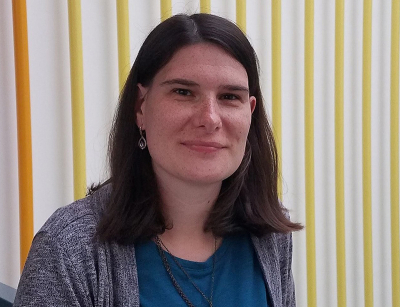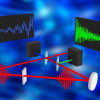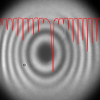
Dr Ellen Adams has been appointed to lead the DRESDEN-concept Research Group for Physical Chemistry of Biomolecular Condensates. She aims to use the latest terahertz technologies to decipher biophysical processes of interfaces in the cell interior (membrane-less condensates), which, for example, play a role in neurodegenerative diseases.
Dr Adams received her PhD in physical chemistry from Ohio State University, USA, in 2016. She then conducted postdoctoral research at KTH Royal Institute of Technology, Stockholm, Sweden, and at Ruhr-Universität Bochum, Germany, where she first investigated the hydration properties of biomolecular condensates using terahertz spectroscopy. “The results of my research have implications not only for biology, but for many other fields in which water is essential, including many areas of physical chemistry, biochemistry and atmospheric chemistry. Interdisciplinary collaboration between many research areas is essential to achieve my research goals. The Cluster of Excellence PoL and the HZDR offer me a great opportunity to continue my research while living in one of my favourite cities. I’m looking forward to calling Dresden my new home”, she said.
Her new joint research group on biomolecular condensates will work with the Cluster of Excellence Physics of Life (PoL) at TU Dresden and Helmholtz-Zentrum Dresden-Rossendorf (HZDR), which have jointly funded her position.








